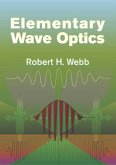Albert Einstein characterized the work of James Clerk Maxwell as the "most profound and the most fruitful that physics has experienced since the time of Newton." Max Planck went even further, declaring that "he achieved greatness unequalled," and Richard Feynman asserted that "From a long view of the history of mankind seen from, say, ten thousand years from now there can be little doubt that the most significant event of the nineteenth century will be judged as Maxwell's discovery of the laws of electrodynamics."
Maxwell made numerous other contributions to the advancement of science, but the greatest work of his life was devoted to electricity. An Elementary Treatise on Electricity appeared at a time when very few books on electrical measurements were available to students, and its compact treatment not only elucidates the theory of electricity but also serves to develop electrical ideas in readers' minds. The author describes experiments that demonstrate the principal facts relating an electric charge as a quantity capable of being measured, deductions from these facts, and the exhibition of electrical phenomena.
This volume, published posthumously from Maxwell's lecture notes at the Cavendish Laboratory which he founded at the University of Cambridge is supplemented by a selection of articles from his landmark book, Electricity and Magnetism. A classic of science, this volume is an eminently suitable text for upper-level undergraduates and graduate students.
Dieser Download kann aus rechtlichen Gründen nur mit Rechnungsadresse in A, D ausgeliefert werden.
Es gelten unsere Allgemeinen Geschäftsbedingungen: www.buecher.de/agb
Impressum
www.buecher.de ist ein Internetauftritt der buecher.de internetstores GmbH
Geschäftsführung: Monica Sawhney | Roland Kölbl | Günter Hilger
Sitz der Gesellschaft: Batheyer Straße 115 - 117, 58099 Hagen
Postanschrift: Bürgermeister-Wegele-Str. 12, 86167 Augsburg
Amtsgericht Hagen HRB 13257
Steuernummer: 321/5800/1497
USt-IdNr: DE450055826
Bitte wählen Sie Ihr Anliegen aus.
Rechnungen
Retourenschein anfordern
Bestellstatus
Storno









